October 18, 2016, Tuesday – Vatican Pravda?
“With an article worthy of Pravda, the Vatican Insider website today presents its readers the equation ‘traditionalist Catholic’ = ‘enemy of Bergoglio’ = ‘lover of Putin.'” —Francesco Colafemmina, an Italian Catholic philologist with a love for sacred art and architecture (link). In a new article entitled “Vatikan Pravda,” Colafemmina sharply criticizes an October 16 article on the Vatican Insider website by Andrea Tornielli and Giacomo Galeazzi which lists the names of “critics” of Pope Francis, and alleges that these “anti-Francis Catholics” are attracted to… Russian President Vladimir Putin. (link) For the full text of this article, see below. (Special note: the Vatican Insider website is different from and has nothing to do with Inside the Vatican magazine, which I founded and direct; to subscribe to Inside the Vatican monthly magazine, click here)
Pravda on the Tiber?
Today I have to report on a fascinating and troubling controversy that has arisen in Italy, but which has relevance for the entire Catholic Church, and for the world in general.
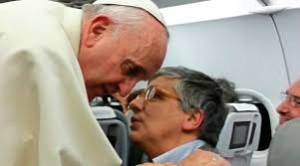
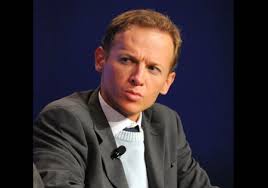
I publish the entire article below, but here is the link.
The oddest thing about the report is its final sentence, which quotes Italian sociologist Massimo Introvigne as saying that those Catholics who are critical of Pope Francis are attracted to… Russian President Vladimir Putin(!).
One might have expected the authors to link the Catholic critics of Pope Francis to French monarchist movements, or to traditional Catholic movements devoted to the theology of St. Thomas Aquinas or the liturgy of the old Mass, but no, the authors link the supporters of Pope Francis to… Putin.
“Catholics who are anti-Francis but love Putin” is the title of the article.
I was startled by this headline, because it is the first time I have ever seen a direct attempt to link conservative Catholics with the former Soviet KGB agent, and I immediately asked myself, “Why this? Why now?”
I don’t yet have any comprehensive answer.
However, one odd thing, it seems to me, is that the impact of the article, in the end, is to prompt a reader to go look at the articles and websites listed. In other words, this article, by listing many of the opponents of Pope Francis and their websites, makes it much easier for those reading the article to consult those very articles and websites. Whether this is an intended or unintended consequence of the publication of this article, I do not know.
Clearly, this article seems aimed at dividing the Church into two groups, one “pro-Francis” and the other “anti-Francis.”
For the Church, the ultimate effect of this type of incipient “division” of the Church into two types of Catholics is something which seems likely to increase polarization, defensiveness and division, which would weaken the Church and so be a matter of rejoicing for the Church’s enemies.
This unusual little article, thus, seems important, and it needs to be taken into consideration by anyone attempting to understand this pontificate — and by anyone attempting to defend the perennial faith of our Church.
The main purpose of this letter, then, is to bring your attention to this article, and alert you to the fact that a new phase in the ongoing cultural and theological struggle over the future of the Church seems to have been initiated this week.
And this is a confirmation for me of things I have heard in a number of conversations during the past year in which I have been told that an effort will be made to exploit the differences in theological emphasis in the Church in order to divide the Church and render her less able to stand against the various anti-Christian agendas which are developing with such rapidity in our time.
The agenda seems to be two-fold: to divide the Church in every way possible and by so doing to weaken her.
I do note one interesting fact found in the second paragraph of the article: that one vote during the 2013 papal conclave which ended by electing Jorge Bergoglio as Pope, was not counted. The cardinals filled out their votes, the article says, but when the ballots were all brought to the front, and counted, it was seen that there was one extra slip of paper, one ballot too many. So, it was immediately decided to throw away all of those ballots and to vote again, the article says.
I had not heard before of this invalid vote, cast and then thrown away, and the authors seem to give Antonio Socci as the source for this information, and to accept it as fact, not questioning whether it is true or not.
The Controversial Article
Below is the Vatican Insider article which has aroused such controversy.
Once again, I publish the entire text of the article here, but it can also be found at this link.
So everything that follows is from the article, not my own writing, which ends here.
Catholics Who Are Anti-Francis But Love Putin
Journey to the world of Francis’ opponents, where regionalists, Ratzinger nostalgics and enemies of the Council are joined by a common disapproval of the current Pope: “There is chaos in the Church because of the Pope”
(This photo, taken on February 11, 2013, the day that Pope Benedict announced his resignation, illustrates the Vatican Insider article, which has the following caption: “On his official Facebook page, Antonio Socci claims that Benedict XVI did not really want to resign but still considers himself Pope and wants in some way to share the ‘Petrine ministry’ with his successor. Ratzinger himself, however, has denied this interpretation”)
October 16, 2016
By Giacomo Galeazzi and Andrea Tornielli
Rome
The glue that holds them together is their aversion towards Francis. The world of Francis dissenters ranges from Lefebvrians who have decided to “wait for a traditional Pope” before renewing their communion with Rome, to catholic regionalists who compare Francis to his predecessor Ratzinger and promote the campaign “Benedict is my Pope.”
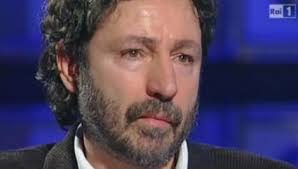
This was because one of the cardinals mistakenly placed an extra ballot in the ballot box.
The voting resumed immediately to wipe away any doubts and without any of the cardinal electors raising any objections.
Prelates and traditionalist intellectuals have signed appeals or protested against the Argentinian Pope’s open pastoral attitude with regard to communion for remarried divorcees and dialogue with the Chinese government.
Opposition to the Pope unites people and groups that are very different among them: soft criticism is expressed by online newspaper La Bussola Quotidiana and monthly newspaper Il Timone, directed by Riccardo Cascioli.
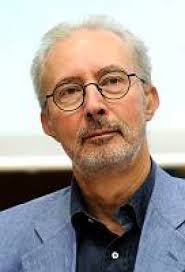
Then there are the revelatory and mocking comments made by Maria Guarini (photo below left) in Italian blog Chiesa e Postconcilio and the harsher criticisms made by ultra-traditionalist and sedevacantist groups, those who believe there has not been a worthy Pope since Pius XII.
Italian newspaper La Stampa visited the places and protagonists of this opposition to Francis which is contained in terms of numbers but widespread on the web. Those behind this opposition, use the Internet and private meetings between clerics, combining frontal and public attacks with more articulate strategies.
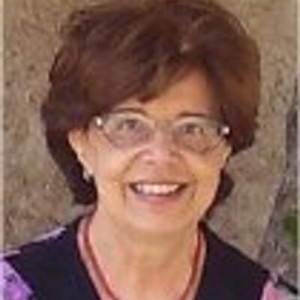
(Photo below of Alessandro Gnocchi, who is included among the “opponents” of Pope Francis because he has written that “the Church is becoming worldly”)

Opposition headquarters
Fondazione Lepanto, located between the paleochristian walls of St. Balbina Basilica on the Aventine Hill, is one of the cultural power houses of anti-Francis sentiment.
The foundation’s books combined with the Corrispondenza Romana news agency and the meetings held in the sitting room on the first floor, make it one of the headquarters of the anti-Bergoglio front.
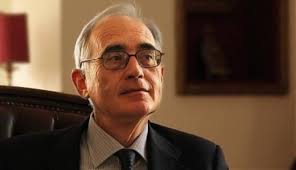
Opposition, De Mattei added, “is not just being expressed by these so-called traditionalist circles extends to bishops and theologians who were trained according to the Ratzinger and Wojtyla schools of thought.”
De Mattei prefers to refer to it as “resistance” rather than “dissent.” This resistance was recently expressed by 45 Catholic theologians and philosophers who criticized the apostolic exhortation “Amoris Laetitia” and by 80 figures – who gradually turned into several thousand – including Catholic cardinals, bishops and theologians, who made a declaration of “loyalty to the unchanging magisterium of the Church.”
One of the hotbeds of resistance, the historian underlined, “is the John Paul II Institute for the family, whose heads were recently removed by Bergoglio.”
Traditionalists are also targeting Francis for the part his migration policy is playing in destabilizing Europe and obliterating western civilization.
Political-theological opposition
The attack against Francis is global.
“There is a strong geopolitical element in the circles that oppose Francis,” observes Agostino Giovagnoli, Professor of Contemporary History at the Milan’s Università Cattolica and expert on dialogue with China (photo). “They are accusing Bergoglio of not proclaiming the truths of the faith with sufficient vigour but in reality they are blaming him for not defending the West’s primacy. This opposition has political motivations that are masked by theological and ecclesial questions.”
China is an example of this. “There is an alliance between Hong Kong circles, sectors within the US and Europe’s right-wing: they are accusing Francis of putting the goal of uniting the Church in China before the defense of religious freedom,” he continues. “Such positions are often expressed by Catholic news agency Asianews. These critics say the Pope should affirm religious freedom as a political argument against Beijing instead of seeking dialogue through diplomatic means.”
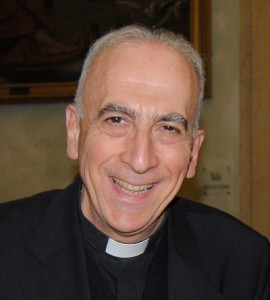
“Today, there are quite a few lay people, priests and bishops are asking themselves where we are headed,” he tells La Stampa. “In the Church, it has always been possible to express one’s opposition to ecclesiastical authorities, even the Pope. Cardinal Carlo Maria Martini notoriously put his opposition to the reigining Pope in writing too but John Paul II never removed him from his post as Archbishop of Milan, nor did he consider him a conspirator.”
The Pope’s job, Bux continued, is “to safeguard ecclesial communion, not to favour division and rivalry, siding with progressives against the conservatives.”
“If a Pope upheld a heterodox doctrine, cardinals in Rome could declare his fall from office.”
(Italian researcher Flavio Cuniberto, below, has authored a book criticising the Pope’s social magisterium, and recently launched a protest in the Italian newspaper Il Giornale)
In a rippling crescendo, researcher Flavio Cuniberto — who has authored a book criticising the Pope’s social magisterium, is a scholar of René Guenon and of traditionalism close to the esoteric right — recently launched a protest in Italian newspaper Il Giornale. He stated that “Bergoglio has not updated Catholic doctrine, he’s destroyed it and acts as though he is a Catholic but is in fact not: the distorted idea of poverty elevates old pauperism to the dogmatic sphere.”
The Pope praises recycling and thus “the virtues of the good late-modern consumer become the new evangelical virtues.”
Theories about the two Popes
On his official Facebook page, Antonio Socci claims that Benedict XVI did not really want to resign but still considers himself Pope and wants in some way to share the “Petrine ministry” with his successor.
Ratzinger himself has denied this interpretation outright on more than one occasion between February 2014 and the recent interview-length book “Final Conversations,” confirming that his resignation is completely valid and publicly demonstrating his obedience to Francis.
The theory was fueled by the interpretation drawn from some words pronounced last may by the Prefect of the Papal Household and Benedict XVI’s secretary, Archbishop Georg Ganswein.
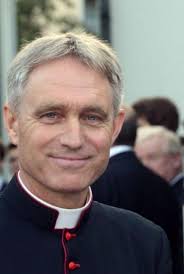
Socci published Bergoglio and Ratzinger’s photos next to each other with the caption: “Which of the two?”
He went on to write: “One contrasts love and the truth (Bergoglio), while another sees them united in God (Benedict XVI)”.
Among the many comments to these remarks, Paolo Soranno wrote: “Francis I seems to be serving God Rainbow (who does not impose religious and moral principles) and not the Catholic God.”
The opposition intensifies on the web, with people letting all fury loose protected by their computer screen, as was apparent from some comments beneath the articles posted on social networks.
The “messainitaliano” website, which promotes the old liturgy but also publishes vitriolic comments on the Pope, speaks about the “tedious ideological monotony of the current pontificate.”
On the web, one comes across comments about the Church eventually dissolving into some kind of a UN of religions with a touch of Greenpeace and a hint of a trades union organization, given that “today, moral sins are downgraded and Bergoglio established social (or socialist) sins as well.”
Maria Guarini’s ultra-traditionalist blog “Chiesa e Postconcilio” publishes titles such as: “If the next Pope is Bergoglian, the Vatican will become a Cathomasonic branch.”
The opposition comes from the more conservative side of the spectrum but also finds a voice among some disappointed ultra-progressives.
Such is the case of the Ambrosian priest Fr. Giorgio De Capitani, who relentlessly attacks Francis from the left and does not therefore merit to be included in the groups described so far.
He tears the pontificate to pieces and feeds it to the wolves. “How many useless and obvious words. Peace, justice and goodness. The Pope is really getting on our nerves with all these tear-jerking words and gestures. Francis is a victim of his own consensus and all he is doing is creating illusions, pulling the wool over our eyes, steals some applause and fills some nincompoop journalists who know nothing of the faith, with rapture.”
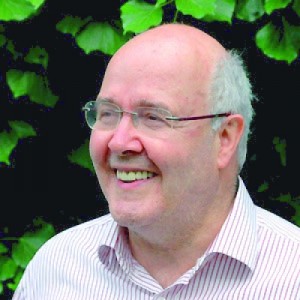
This mixed opposition has identified some bishops and cardinals as reference points.
On his blog, Magister put Guinean cardinal Robert Sarah forward as a papal candidate. Sarah is currently Francis’ liturgy minister and is much loved by conservatives and traditionalists who often quote him on their websites and publications.
Risk of a schism?
Among those considered pole stars, are first and foremost US cardinal Raymond Leo Burke, patron of the Sovereign Military Order of Malta and the Auxiliary Bishop of Astana, Athanasius Schneider.
But beyond the amplified stories present on the web, there do not seem to be any further schisms on the horizon, after Bishop Marcel Lefebvre’s in 1988.
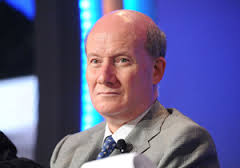
Introvigne claims that this opposition “is present both on the web and in real life and is overestimated: there are dissidents who write comments on social networks using four or five different pseudonyms, to give the impression there are many of them.”
According to the sociologist, the movement “is not successful because it is not united. There are at least three different kinds of opposition: the political opposition of American foundations, the opposition of Marine Le Pen and Matteo Salvini who are not particularly interested in liturgical or moral issues — they often do not even go to church — but in immigration and the Pope’s critiques against turbo-capitalism.
“Then there is the opposition expressed by those who feel a nostalgia for Benedict XVI but do not contest Vatican II.
“And there is the radical opposition of the Society of St. Pius X or the likes of De Mattei and Gnocchi. This form of opposition rejects the Council and everything that came after it. Despite support from the odd Church figure, the contradictions between the three standpoints are destined to explode and a common front has no chance of lasting.”
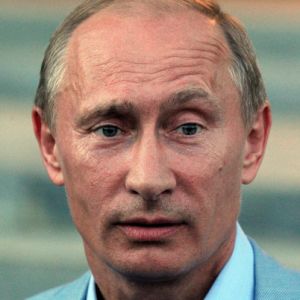
[End of article]
[Beginning of responses to the Vatican Insider article]
“Vatikan Pravda”?
In his critical comment on this article, Italian Catholic scholar Francesco Colafemmina, who is from Apulia in southern Italy (photo), does not mince words.
“The emails of John Podesta, head of the electoral campaign of Hillary Clinton, revealed by Wikileaks, help us to understand,” Colafemmina writes. “In a February 11, 2012 email — exactly one year before the resignation of Benedict XVI — Podesta answers the activist Sandy Newman, who had asked for a ‘Catholic springtime’ to overcome ‘the medieval dictatorship’ of the Catholic hierarchy. Podesta responds that he had created two ‘progressive’ Catholic movements, but that she is right that they need to be brought to a higher level of effectiveness in exerting pressure on the Church.”
Colafemmina concludes that the original editorial aim of the Vatican Insider web project was “to create an adequate space for a one-way mediatic resonance in support of a papacy that would follow the allegedly ‘obscuratist’ papacy of Pope Benedict.”
And he adds: “The point is that, thank God, we understand better each day that this ‘media pressure’ function is not connected to internal Church matters only, but rather concerns a geopolitical dimension in which the Church, led by Bergoglio, is merely a tool, and certainly not the protagonist.”
He continues: “Frankly, I think Bergoglio’s pontificate coincides with a clear project: to introduce the Church into the reality of the so-called New World Order. I do not mean to say in paranoid tones that there is a kind of ‘conspiracy,’ but rather that there is a political or geopolitical necessity.
“We live in a world increasingly dominated by financial elites and the power of technology. In this world, which has erased classical culture, which no longer rests on the cultural roots of Europe, but rather on the dictates of an amorphous cultural and moral indifference, the Church has two possibilities: (1) to be crushed by the dominant culture, or (2) to try to survive.
“To survive, the Church must assume, in a kind of deadly mimicry, the very characteristics of the dominant culture: contradiction, temporariness, ahistoricism, entropy — in particular this last, which the great sociologist Zygmut Bauman has said is the keystone of the ‘culture’ of the financial elites. Entropy, chaos, unpredictability, are the ‘salt’ of the equity markets, the ‘salt’ of modern politics, the ‘salt’ of the speculators.
“So, the issue is far more profound than the age-old controversy between traditionalists and progressives within the Church. Do you really believe that the Catholic Church with all her properties, with her embassies, with the dissemination of her ministers in every corner of the world, is underestimated by the powers of this world? Not at all…
“Bergoglio is nothing other than the expression of a large slice of the College of Cardinals, bishops and above all diplomats who had come to understand at the end of the pontificate of John Paul II that to survive the Church did not have any options other than that of working out a ‘decent compromise’ with the world, according to the incisive definition of the controversial, but prophetic, Jesuit Fr. Malachi Martin.”
He continues: “In truth, the title in the printed newspaper edition of the article [in the Turin, Italy, newspaper La Stampa] is emblematic: ‘The Anti-Francis Catholics Attracted by the Power of Putin.’
“A fundamental premise, because the basic idea is that what attracts these Catholics is not Putin’s statesmanship and his geopolitical vision, but his ‘power’…
“In other words, in the final analysis, everything is always the fault of Putin, the perfect dictator, the tyrannical man who exudes power, the enemy of democracy, the homophobic and intolerant, the wealthy friend of Russian oligarchs, and so on.
“The source of this association — which is only a fleeting reference at the very end of the article, though the title suggests it is the main argument of this pseudo-investigation — is a well-known sociologist [Massimo Introvigne]…
“The article passes through a sieve with scientific scrupulousness the Catholic ‘dissidents,’ indeed the real ‘enemies,’ ‘opponents’ of Bergoglio.
“It ranges from the ‘Emeritus’ Vaticanist of Espresso, Sandro Magister, to Professor De Mattei, passing by Antonio Socci and many others.
“It gives the first and last names of all of them, in a sort of mediatic ‘proscription list’ worthy of Sulla [Note: In 82 BC, when the Roman leader Lucius Cornelius Sulla was appointed dictator rei publicae constituendae (‘Dictator for the Reconstitution of the Republic’), he proceeded to have the Senate draw up a list of those he considered enemies of the state and published the list in the Roman Forum. Any man whose name appeared on the list was ipso facto stripped of his citizenship and excluded from all protection under law; reward money was given to any informer who gave information leading to the death of a proscribed man, and any person who killed a proscribed man was entitled to keep part of his estate (the remainder went to the state)… Many victims of proscription were decapitated and their heads were displayed on spears in the Forum.]
“This shows clearly the nature of the future war.
“Not simply a conflict between Russia and the US, but a conflict pitting the ideology of a West without identity, without roots, without non-negotiable ethical references, against all the countries that, on the contrary, defend and promote their own identity, their own roots, their own values.
“Russia is a prime example in this regard, and an example close to us, because we speak of a Christian nation.
“But Russia also constitutes a model of the co-existence of religious and cultural diversity. An opposite model to that of the failing forced integrations of France, Germany and Great Britain.
“Russia is in the bull’s-eye simply because it is the only great power antagonistic to the unipolar American vision.”
And he continues: “In any case, there is no precedent for this use of journalism to marginalize, ghetto-ize, criminalize, these admittedly sometimes irritating minorities who do not conform to the unconditional assent regarding Bergoglio… It is unprecedented because this use of the press for geopolitical purposes, in order in the end to cancel all freedom of expression, through the ridiculing of dissent, shows what power such journalism is serving.”
And he concludes: “None of this was unexpected. In November 2013, I published a few extracts from an interesting book on the Church and her geopolitical prospects by Fr. Malachi Martin [Note: The Keys of This Blood]. In particular this: ‘The reduction of the Pope in his high office will be the result of the belief that the original Petrine and papal office as practiced by the Romans and all the Popes until the last third of the 20th century, was in fact nothing more than the result conditioned by the time of cultural fashions that stretch back for centuries; and it is now time to degrade the importance to be able to release the ‘spirit of Vatican II’ to model the Church in an image that suits the liberal conception of a new era, very different from the previous one. Roman Catholics will then have the spectacle of a Pope validly elected who cuts the entire visible body of the Church loose from the traditional unity and the papacy-oriented apostolic structure that the Church has hitherto always believed and taught was divinely established. The shudder that will shake the Roman Catholic body in that day will be the shudder of its death agony… Many will accept the new regime. Many will resist. All will be fragmented. There will be no one on earth to hold the fractionating members of the visible Roman Catholic body together as a living compact organization.”
“Both statements are false”
In a second article criticizing the Tornielli-Galleazzi article, the well-known and well-respected Fr. Bernardo Cervellera rejects that “the accusation made against AsiaNews that we are against the Pope and in favor of Putin.” (link)
The Galeazzi-Tornielli article had quoted Agostino Giovagnoli, Professor of Contemporary History at Milan’s Università Cattolica and expert on dialogue with China as saying: “There is an alliance between Hong Kong circles, sectors within the US and Europe’s right-wing: they are accusing Francis of putting the goal of uniting the Church in China before the defense of religious freedom,” he continues. “Such positions are often expressed by Catholic news agency Asianews. These critics say the Pope should affirm religious freedom as a political argument against Beijing instead of seeking dialogue through diplomatic means.”
Fr. Cervellera writes: “We are very sorry — for their lie, rather than for ourselves — that two Vatican experts have cited AsiaNews among ‘those Catholics who are against Francis and worship Putin.’ Because both statements, regarding the Pope and Putin, are false. I’m not here to list proof of this: all anyone has to do is actually read the articles we write. For us it is a point of honor — and professionalism — not to register the thing that most pleases the powers that be, but all aspects, be they complex or contradictory, of a given event. This, for us, means being of service to the truth.”
“You can also betray a person with too much applause”
The English translation of Father Cervellera’s very interesting article has just appeared, published in AsiaNews, which covers in a professional and faithful way all events related to the Church in Asia. The text is below.
The article may also be found at this link.
Here is the full text of the article by Father Cervellera.
October 18, 2016
VATICAN-ASIA
The “Enemies” of Pope Francis
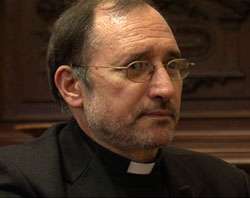
The charge made against AsiaNews that we are against the Pope and in favor of Putin, is an opportunity to outline what motivates our commitment to evangelization. And also to ask for greater professionalism from those who write about the Pope. The Pope does not need public defenders. Facilitating dialogue between “conservatives” and “progressives” to realize the Council and concern ourselves with the world so that it encounters Jesus Christ. Christ’s “enemies” were also his “friends.”
Rome (AsiaNews) – Not a day goes by without AsiaNews publishing reports of the Pope’s homilies, speeches, audiences, summaries of encyclicals. We are among the fastest agencies to offer what the Pope teaches on-line with translations into Italian, Chinese, Spanish and English.
Many Chinese, Indians, Latin Americans are grateful for the speed with which they can access the Pope’s words, particularly since the official sites are too slow.
We chose to offer this service, which occupies us every day, even on Sundays, to help the Churches in Asia to receive the words of the Pope as soon as possible. We did this with Pope John Paul II, Benedict XVI and now with Pope Francis.
This service is especially useful to Chinese Catholics. And since the AsiaNews site is sometimes blocked by the Beijing authorities, we have been given the go ahead to another, more anonymous, website titled “Ascoltiamo Papa Francesco.net” [Listen to Pope Francis –ed]to republish our articles on Pope Francis in Italian and Chinese (seeing is believing), even if the website owners sign our articles (in a clear breach of professional ethics). But this fact matters little to us: “provided that Christ be announced” as Saint Paul says. (Philippians 1, 18).
Given this experience, we are very sorry — for their lie, rather than for ourselves — that two Vatican experts have cited AsiaNews among “those Catholics who are against Francis and worship Putin.”
Because both statements, regarding the Pope and Putin, are false. I’m not here to list proof of this: all anyone has to do is actually read the articles we write. For us it is a point of honor — and professionalism — not to register the thing that most pleases the powers that be, but all aspects, be they complex or contradictory, of a given event. This, for us, means being of service to the truth.
With regards China, while we exalt its achievements in space and its progress among the great powers of the world, we do not forget the problems of pollution or the Dalai Lama, who for us is almost like a migrant, an exile, similar to those many exiles and migrants Pope Francis embraced in Lampedusa.
Equally so on questions regarding the Catholic Church, while we report on Pope Francis enthusiasm towards Xi Jinping, we can not forgo reporting on the deep sorrow that the silence regarding persecution is causing among underground Christians. Because this regards an estimated 5 million people who for decades have given their lives — sometimes even their blood — for the Gospel and who now, suddenly, have disappeared from public concerns.
In the article in question, an academic among the most optimistic regarding dialogue between China and the Vatican — I remember that in 2005, after the death of John Paul II, he had predicted that a diplomatic agreement would be signed, one that we still await with faith and hope — well, this “super-optimist” says that we are “allied” with “Hong Kong environments, sectors in the US and European right” to push Pope Francis to favor religious freedom over the unity of the Church in China.
This opinion, in our view, is unfounded: we have never received visits or awards from a US president or Secretary of State, nor European.
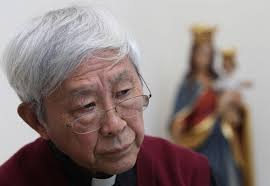
Unfortunately Pope Francis has few friends of this caliber. He does not even have them amongst expert Vatican journalists.
And in fact, my greatest pain is to see the blacklist drawn up in that article: that site, that journalist, that priest, the bishop, the cardinal.
I wonder what it’s for, and I fear it is being used to divide, thanks to the unguarded work of these coryphaei who are self-appointed “infallible interpreters” of the pope, and defenders of the pope.
When Pope Francis rose to the papacy, it was clear that he wanted to actuate the Second Vatican Council (as he says in his encyclicals).
For this it was necessary (and is still necessary) to unite, to dialogue and find a common way among so-called Catholic “conservatives” and “progressives,” whose division is one of the nastiest wounds that we have been carrying around for decades.
If you listen to everything Pope Francis actually says, then you realize that he really is a Pope of tradition in development, above the “hermeneutic of rupture” typical of conservatives and progressives.
Unfortunately it seems that the two parties — also thanks to the secular media — are driving their divisions deeper and hardening their stance even more.
It is the Pope’s task, as the symbol of unity of the Church, to work to repair this. It is the task of expert Vatican journalists to outline how this work is progressing. I have no comment on this desire to hand down judgements on who is good and who is bad.
My advice, if you really want to help Pope Francis, is to support his position of dialogue — which is something we would also like to see among the “souls” of the Church in China — drawing out the shred of truth which the Spirit — as our Pope always says — also instills in Muslims, Jews, Hindus … let alone we Christians.
This work of dialogue with the most distant positions is all the more urgent because of the abyss of secularization and indifference that is engulfing the world. The world believes if the Church is united (“that all may be one so that the world may believe,” says the Gospel of John).
This is what should concern us — right and left in the Church — rather than being seen as exhibitionist “superapostles,” we should be concerned about how to interest the world in faith in Jesus.
Unfortunately, the debate among many Christians is now polarized on “for or against the Pope” and not on the mission to the world.
In a similar vein this is seen in all debate on diplomatic relations with China, and no one is discussing how to bring the Christian faith to this country that thirsts for God, before diplomacy.
As for the Pope, the Pope does not need public defenders.
First of all, because he is well “armored”: a press office, a television center, a newspaper, a radio…
But then, especially since Pope Francis himself said he is not interested in hearing people shout “Long live the Pope!”
He wants to hear “Long live Jesus Christ!”
And even if it should be the case that the Pope is hurt or criticized, it only conforms him even more to Jesus Christ who was scourged, even struck by his “enemies”, but betrayed by his “friends.”
You can also betray a person with too much applause.
Note: The Moynihan Letters go to some 20,000 people around the world. If you would like to subscribe, click here to sign up for free. Also, if you would like to subscribe to our print magazine, Inside the Vatican, please do so! It would support the old technology of print and paper, as well as this newsflash. Click here.
What is the glory of God?
“The glory of God is man alive; but the life of man is the vision of God.” —St. Irenaeus of Lyons, in the territory of France, in his great work Against All Heresies, written c. 180 A.D.


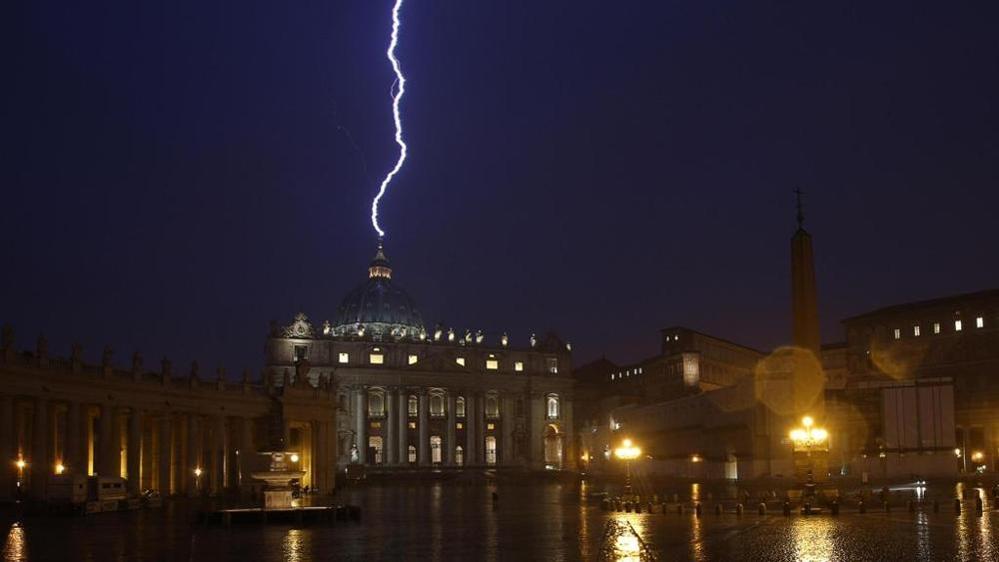
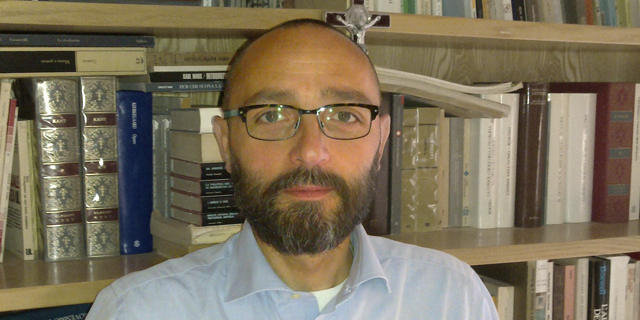
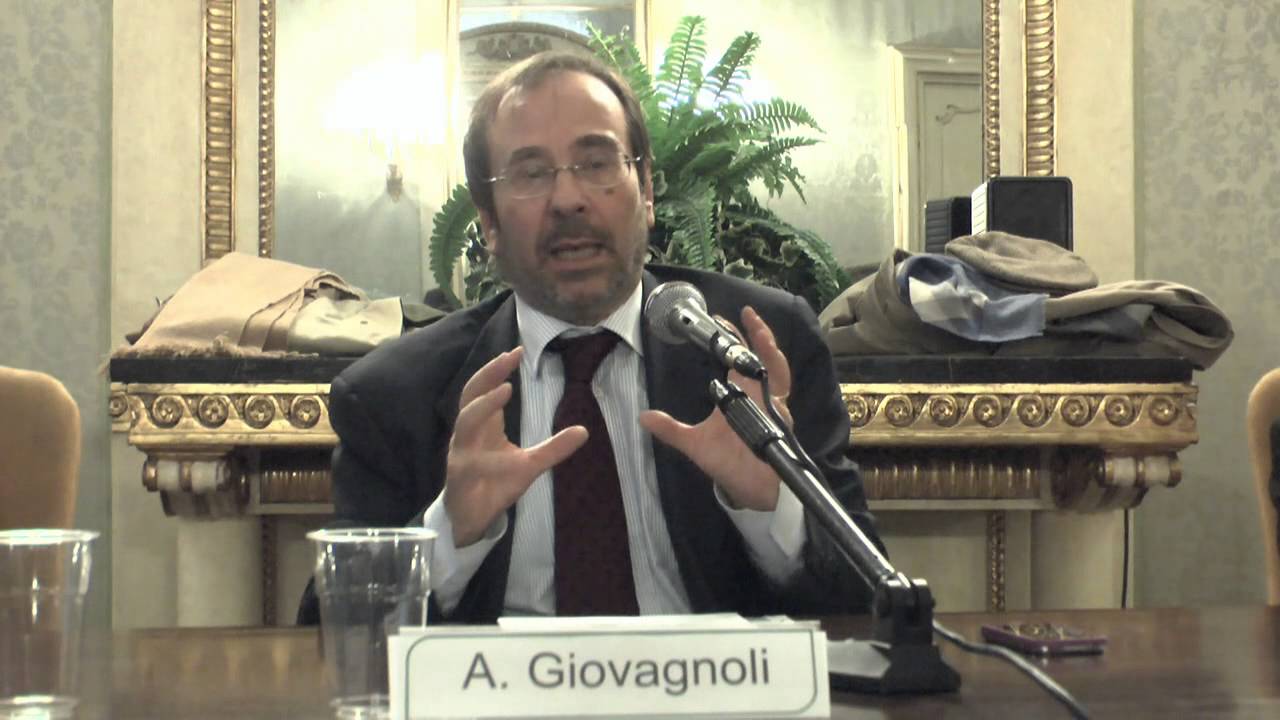
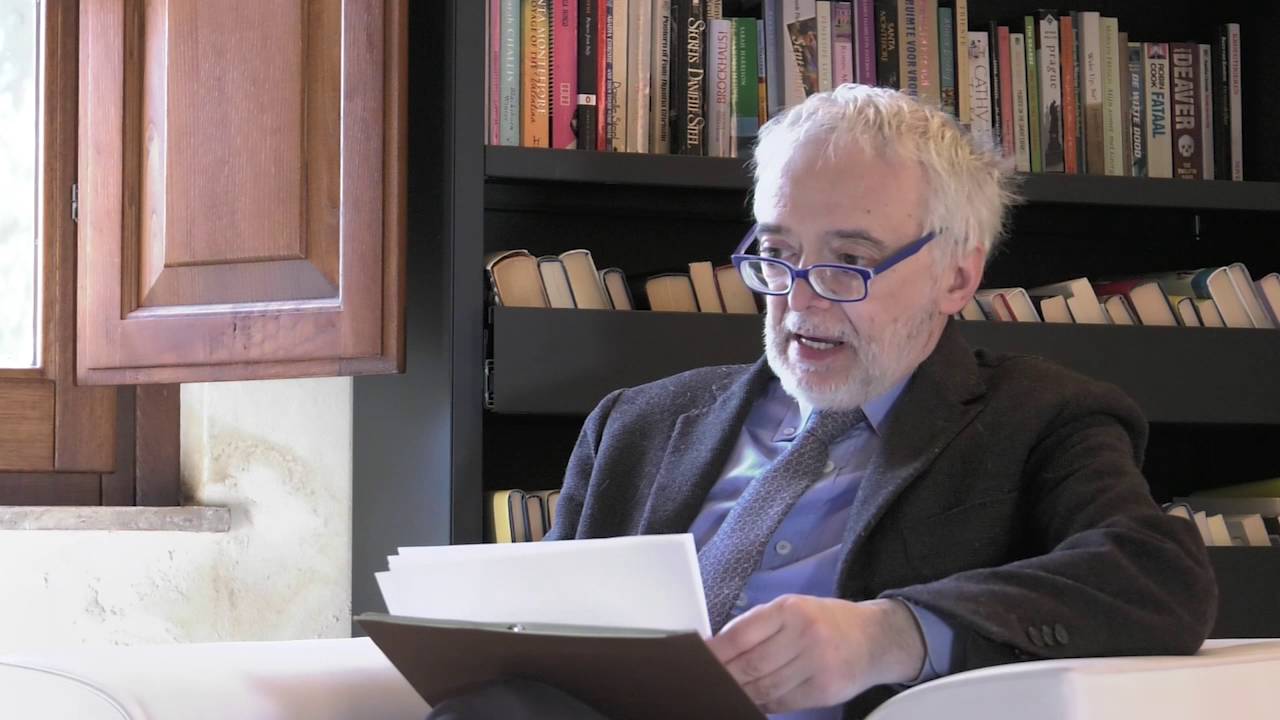
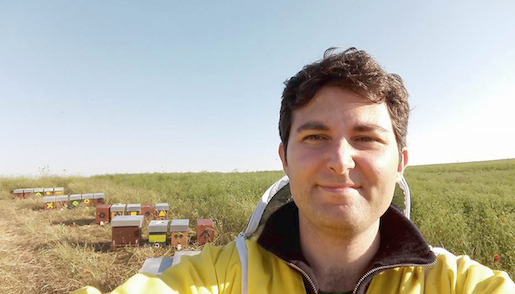





Facebook Comments